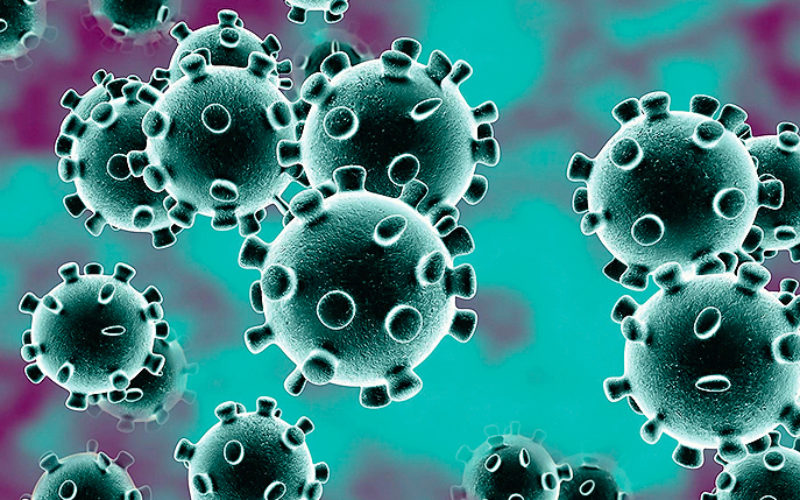Coronavirus, disease spread potential on service providers’ radar
STACY RYBURN
sryburn@nwadg.com
News of the coronavirus across the globe has prompted local service providers to closely examine how they help prevent the spread of infectious diseases among vulnerable populations.
The U.S. Department of Housing and Urban Development released guidelines on how best to manage infectious diseases among homeless people. The toolkit, created for continuums of care nationwide, provides a structure and specific examples for planning and responding to influenza, the new coronavirus known as covid-19 and other infectious diseases.
Continuums of care are organizations coordinating aid for people who are homeless or at risk of being homeless. The Northwest Arkansas continuum has member agencies in Washington, Benton, Madison and Carroll counties.
The federal guidelines break management down to preparation, mitigation and response strategies. They recommend service providers partner with public health agencies and have plans set with the partners involved.
Service providers across the country are experienced in managing the spread of infectious disease, including those in Northwest Arkansas, said John Gallagher, board chairman of the regional Continuum of Care. The clients member agencies serve tend to have an elevated risk for just about every medical or physical ailment, especially infectious disease, he said.
People experiencing homelessness often don’t have access to basic sanitation and health resources, which is where service providers step in, Gallagher said.
“People know to wash their hands, but if you live outside, it’s hard to wash your hands,” he said.
Close quarters
Efforts can be especially challenging because people gather in close quarters to get a meal or receive supplies or have a place to sleep for the night, Gallagher said. That elevates the risk to clients and service providers alike, he said.
Agencies have their own protocols and partnerships depending on the services they provide, Gallagher said. For instance, the Salvation Army administers free vaccinations and provides hand sanitizer and face masks at its shelters. Seven Hills Homeless Center has a longstanding partnership with the University of Arkansas’ Eleanor Mann School of Nursing.
That being said, the coronavirus has the continuum’s attention, Gallagher said. Agency representatives discussed the situation during a meeting last week.
The goal is to strengthen resources and partnerships and to stay on top of any new developments regarding the coronavirus threat, Gallagher said.
“It’s just using this unquestionably bad news story as a moment in time to say, ‘How do we do what we do?’ and, ‘How do we do it better?’ — whether it’s for corona or influenza or anything else,” he said.
The Centers for Disease Control and Prevention is sending daily guidelines for public health providers to follow, said Monika Fischer-Massie, executive director of WelcomeHealth, a free clinic in Fayetteville.
“When we have patients who mention they have certain symptoms, we assume they all have this virus,” she said.
Precautions include where a patient is placed in a facility and movement of personnel within the building to equipment controlling the environment and basics such as personal hygiene, Fischer-Massie said. Anything suspicious gets reported to the Health Department, she said.
WelcomeHealth sees patients experiencing homelessness or living in poverty. The clinic will provide assistance to area service providers if necessary, Fischer-Massie said. The coronavirus threat is on the radar of regional health providers, she said.
“It is getting closer by the day,” Fischer-Massie said.
Time to get ready
Areas of the country where the coronavirus has been confirmed are trying different ways to prevent its spread among vulnerable populations. King County officials in Washington state are buying a motel to house coronavirus patients who don’t have the means to quarantine themselves, according to MyNorthwest radio. Health and service providers are working together to coordinate efforts.
Multnomah County health officials in Oregon are developing a formal plan with service providers to deal with the spread of the coronavirus among homeless people, according to the Oregonian newspaper.
Television station KXAN of Austin, Texas, reported shelters there have begun taking precautions such as installing hand sanitizing stations at entrances. A case of the coronavirus was confirmed in Fort Bend County, about 150 miles east.
Dr. Jennifer Dillaha, medical director for immunizations and outbreak response with the Arkansas Department of Health, said the state has identified facilities that could be used to house infected patients who wouldn’t be able to quarantine themselves.
Still, more outreach could be done to help service organizations better prepare to minimize the spread of the coronavirus, she said.
Agency leaders need to take a look at their assets and find points of vulnerability, Dillaha said.
“Right now, we don’t have any confirmed cases but it’s likely we eventually will,” she said. “Now’s the time to get ready.”
Staff at 7 Hills Homeless Center routinely wipe down doorknobs, seats and handles, said Steven Mills, chief operating officer. Nursing students visit twice per week, and two medical professionals make frequent visits to monitor people and treat them as needed, he said.
Fortunately, preparation for influenza is similar to that of the new coronavirus. Mills said the center is already following those best practices.
“A lot of people are asking questions and are wanting to be prepared,” he said. “That’s always a good thing.”
__
FYI
Precautions
The best way to prevent the spread of infectious disease is to:
• Avoid close contact with sick people.
• Avoid touching your eyes, nose and mouth with unclean hands.
• Stay home when you are sick.
• Cover all coughs and sneezes with a tissue, and then throw the tissue in the trash and wash your hands.
• Cough and sneeze into your elbow instead of on your hand.
• Clean and disinfect frequently touched objects and surfaces with a regular household cleaning spray or wipe.
— Source: Arkansas Department of Health






